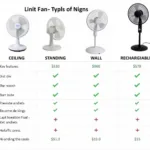Girls’ Generation, also known as SNSD, is one of the most popular and influential K-pop groups of all time. However, their journey to stardom has not been without its share of challenges, particularly the issue of anti-fans. Anti-fans are individuals who actively dislike or oppose a particular celebrity or group, often engaging in harmful and unethical behavior. This article delves into the world of Girls’ Generation anti-fans, exploring the incidents, motives, and consequences of their actions.
The Genesis of Anti-Fandom
The rise of anti-fans in the K-pop industry is a complex phenomenon with various contributing factors. In Girls’ Generation’s case, their immense popularity and success fueled envy and resentment among some fans of other groups. Additionally, the highly competitive nature of the K-pop industry, with its focus on rankings and popularity contests, can create a breeding ground for animosity and aggression.
Notable Anti-Fan Incidents
Throughout their career, Girls’ Generation has faced numerous anti-fan incidents, ranging from online harassment to physical threats.
-
Online Harassment: In 2011, a group of anti-fans created a website specifically dedicated to spreading false rumors and defamatory statements about the members of Girls’ Generation. The website was eventually taken down, but the incident highlighted the extent to which anti-fans can utilize online platforms to inflict harm.
-
Physical Threats: In 2013, an anti-fan was arrested for sending death threats to one of the members of Girls’ Generation. The incident caused significant concern among fans and raised serious questions about the safety and security of K-pop idols.
-
Sabotage and Interference: Anti-fans have also attempted to sabotage Girls’ Generation’s performances and events. In 2014, a group of anti-fans was caught disrupting a Girls’ Generation concert by throwing objects on stage and shouting insults at the members.
The Impact of Anti-Fans
The impact of anti-fans on Girls’ Generation has been multifaceted:
-
Psychological Distress: Anti-fan harassment can have a severe impact on the mental health of idols. Constant negativity, cyberbullying, and threats can lead to anxiety, depression, and even suicidal thoughts.
-
Professional Damage: Anti-fans can undermine the reputation and success of idols. The spread of false rumors and negative publicity can negatively affect the group’s image and brand value.
-
Safety Concerns: Anti-fans can pose a real threat to the physical safety of idols. The incidents of physical threats and disruptions demonstrate the potential for violence and harm.
Combating Anti-Fandom
The fight against anti-fans is an ongoing battle for K-pop idols and their management agencies. Some strategies employed include:
-
Legal Action: Taking legal action against perpetrators of harassment and threats can deter future misconduct and serve as a message that such behavior will not be tolerated.
-
Increased Security: Strengthening security measures at events and venues can help to protect idols from physical harm and disruptions.
-
Public Awareness Campaigns: Raising awareness about the negative impact of anti-fandom and promoting a culture of respect and kindness among fans can help to address the root causes of anti-fan behavior.
Moving Forward: A Culture of Respect
The issue of anti-fans is a complex one that requires a multi-faceted approach. It is crucial to remember that K-pop idols are human beings with feelings and vulnerabilities. A culture of respect, empathy, and responsible fan behavior is essential for creating a safe and positive environment for both idols and their fans.







